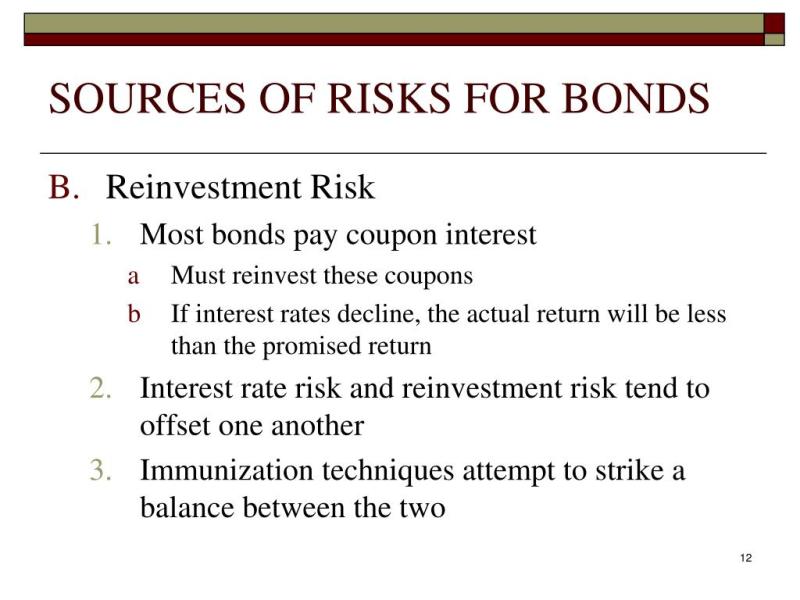What are the risks of corporate bonds?
Investing in corporate bonds can offer stable income and relative safety compared to riskier assets, but like any investment, they come with their own set of risks. It's crucial for investors to understand these risks before considering corporate bonds. Here are some common risks associated with investing in corporate bonds:
Credit Risk:
- Also known as default risk, credit risk is the risk that the issuer may be unable to meet its debt obligations. If the issuing company experiences financial distress or goes bankrupt, bondholders may not receive their principal or interest payments.
Interest Rate Risk:
- Changes in interest rates can impact the value of existing bonds. When interest rates rise, the market value of existing bonds tends to fall. This is because new bonds with higher yields become more attractive, reducing the demand for existing bonds with lower yields.
Market Risk:
- Corporate bonds are traded in the open market, and their prices can be influenced by various factors, including economic conditions, geopolitical events, and market sentiment. Market risk refers to the potential for the value of the bond to fluctuate due to these external factors.
Liquidity Risk:
- Some corporate bonds may lack liquidity, meaning they are not easily tradable. If you need to sell a bond before maturity, you may face challenges finding a buyer at a favorable price, especially for less well-known or lower-rated issuers.
Call Risk:
- Callable bonds give the issuer the right to redeem the bonds before their maturity date. While this is not necessarily a risk for bondholders, it can lead to reinvestment risk. If interest rates have fallen since the bond was issued, the issuer may call the bond and reissue new bonds at lower rates, reducing the income for the bondholder.
Inflation Risk:
- Inflation erodes the purchasing power of future interest and principal payments. If inflation rises unexpectedly, the real return on fixed-interest payments may be lower than anticipated.
Reinvestment Risk:
- This risk is associated with the potential for future interest or principal payments to be reinvested at lower interest rates than the original investment. It often occurs when interest rates decline.
Currency Risk (for Foreign Bonds):
- If you invest in corporate bonds issued in a foreign currency, changes in exchange rates can affect the returns. Currency risk may lead to gains or losses depending on the movement of exchange rates.
Industry and Sector Risk:
- Corporate bonds are often issued by companies in specific industries or sectors. If a particular industry or sector faces economic challenges or downturns, bonds issued by companies in those areas may be at higher risk.
Rating Downgrades:
- If the credit rating of the issuer is downgraded by credit rating agencies, the market value of the bonds may decline. This can happen due to deteriorating financial conditions or a change in the economic environment.
Investors should carefully assess their risk tolerance, investment goals, and the specific features of the corporate bonds they are considering before making investment decisions. Diversification across different issuers, industries, and maturities can also help mitigate some of these risks. Consulting with a financial advisor is advisable for personalized guidance based on individual circumstances.
What are the risks associated with corporate bonds?
Corporate bonds are debt securities issued by corporations to raise money. They are considered to be riskier than government bonds because there is a greater chance that the corporation will default on its debt payments.
The main risks associated with corporate bonds are:
- Credit risk: This is the risk that the issuer of the bond will default on its debt payments. Credit risk is typically measured by the bond's credit rating, which is assigned by a credit rating agency such as S&P Global Ratings or Moody's Investors Service.
- Interest rate risk: This is the risk that the value of the bond will decline if interest rates rise. This is because the bond's fixed coupon payments will become less attractive to investors who can now earn higher yields on new bonds.
- Reinvestment risk: This is the risk that investors will have to reinvest their coupon payments at lower interest rates if interest rates fall.
- Call risk: This is the risk that the issuer of the bond will call the bond back early, before it matures. This can happen if interest rates fall and the issuer can refinance its debt at a lower cost.
How do investors evaluate and navigate the risks of investing in corporate bonds?
Investors can evaluate and navigate the risks of investing in corporate bonds by:
- Understanding the different types of corporate bonds: There are many different types of corporate bonds, each with its own unique risk profile. Investors should understand the different types of bonds available before they invest.
- Researching the issuers of corporate bonds: Investors should research the issuers of corporate bonds to assess their creditworthiness. This includes looking at the issuer's financial statements, credit rating, and business prospects.
- Diversifying their portfolio: Investors can reduce their risk by diversifying their portfolio across different types of corporate bonds and different issuers.
- Monitoring their investments: Investors should monitor their corporate bond investments regularly to ensure that they are still meeting their investment objectives.
Are there market conditions or external factors that influence corporate bond risks?
Yes, there are a number of market conditions and external factors that can influence corporate bond risks. These include:
- Economic growth: Economic growth can have a positive impact on corporate bond risks by reducing the likelihood of defaults.
- Interest rates: Rising interest rates can increase corporate bond risks by making it more expensive for corporations to service their debt.
- Inflation: Inflation can increase corporate bond risks by reducing the purchasing power of coupon payments.
- Geopolitical events: Geopolitical events such as wars and natural disasters can increase corporate bond risks by disrupting economic activity and reducing corporate profits.
Investors should be aware of these market conditions and external factors when evaluating and managing their corporate bond investments.
In addition to the above, here are some additional tips for investors when investing in corporate bonds:
- Start by investing in investment-grade corporate bonds. These bonds have a higher credit rating and are less likely to default.
- Consider investing in a corporate bond fund. This can help you to diversify your portfolio across different corporate bonds and issuers.
- Rebalance your portfolio regularly to maintain your desired risk and return profile.
- Work with a financial advisor to develop an investment plan that is tailored to your individual needs and goals.













